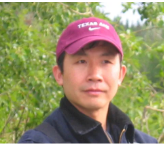TITLE
Indefinability of Effective Stress for Unsaturated Soils
TIME
June 3rd, 11:00 A.M.
LOCATION
Room 322, School of Transportation
INTRODUCTION
For decades researchers have searched for an unsaturated soil effective stress that performs analogously to effective stress for saturated soils and provides some simplifications over net stress and suction approaches. A recent debate is whether problems identified with unsaturated soil effective stress can be resolved via elastoplastic analyses. Effective stress equations are evaluated for consistency with saturated soil effective stress expectations using the Barcelona Basic Model (BBM), simplified into an integrated elastoplastic framework using the Modified State Surface Approach (MSSA). Under isotropic conditions, saturated soil constant volume and yield curves are coincident, and effective stress principle applies. In contrast, unsaturated soil constant volume and yield curves diverge, which is at root to the indefinability of an effective stress for unsaturated soils. Unsaturated soil effective stress is usually defined on shear strength or degree of saturation. Effective stress equations, when used for constitutive modelling of unsaturated soils, cannot recover the form of saturated soil effective stress models, nor provide the often-asserted simplifications or analytical economies. Volume change and/or yield can occur under any constant unsaturated soil effective stress. It is impossible to define an effective stress for unsaturated soils that functions analogously to that of saturated soils.
ABOUT THE LECTURER

Dr. Xiong Zhang is a Professor in the Department of Civil, Architectural, and Environmental Engineering at the Missouri University of Science and Technology (S&T). He received his Ph.D. degree in Civil Engineering from Texas A&M University.
Dr. Zhang has been teaching and conducting research in the field of geotechnical engineering since 1992. His studies focus on development of advanced laboratory techniques to rapidly characterize geomaterials, constitutive modeling coupled hydro-mechanical behavior of unsaturated soils, numerical modeling of climate-soil-structure interaction, slope stability analysis, soil stabilization and ground improvement, and frozen ground engineering. Dr. Zhang is currently Chair of ASCE Geo Institute (GI) Shallow Foundation Committee, Voting Member of TC106 Unsaturated Soils within the International Society for Soil Mechanics and Geotechnical Engineering (ISSMGE) (one of two Voting Members in North America), Associate Editor for ASCE Journal of Cold Region Engineering, and editorial board member of Canadian Geotechnical Journal. He also serves as the committee member of several nationwide technical committees. He received the 2016 International Innovation Award in Unsaturated Soil Mechanics from TC106 Committee on Unsaturated Soils within the ISSMGE.